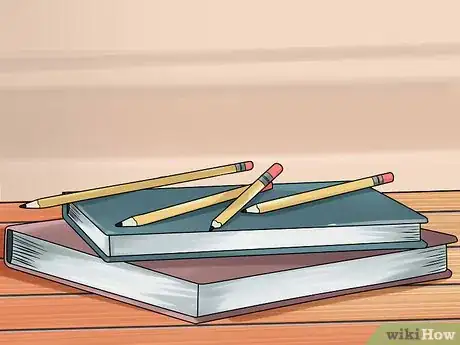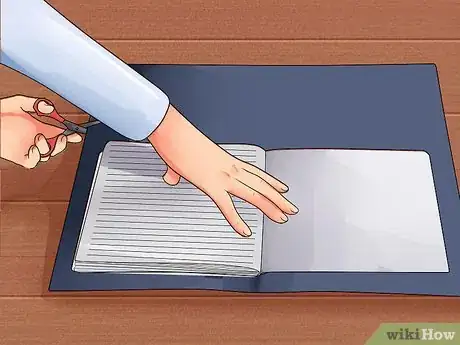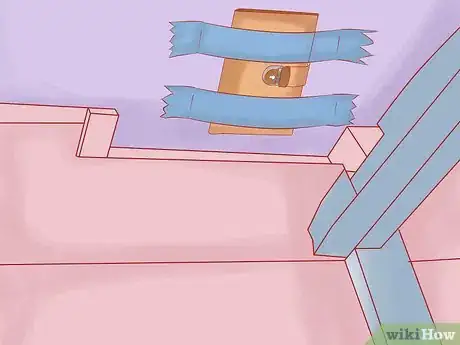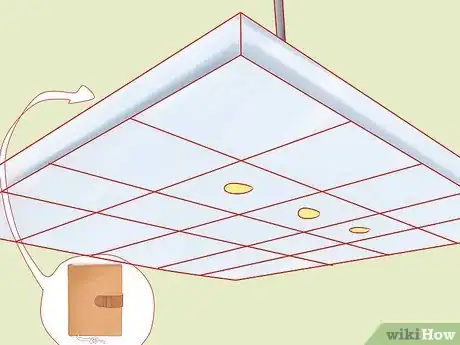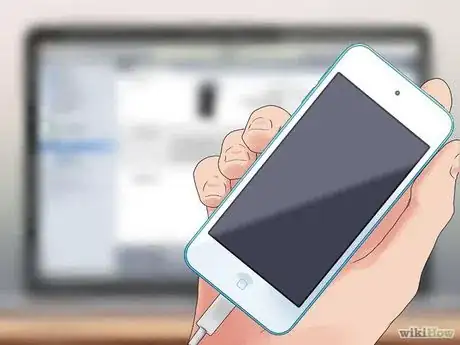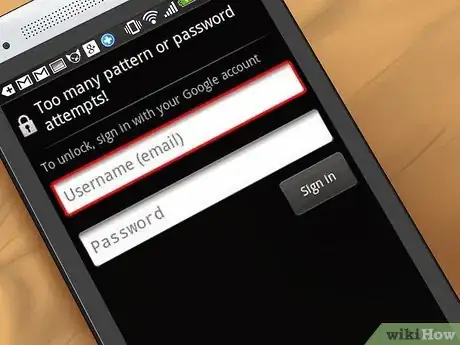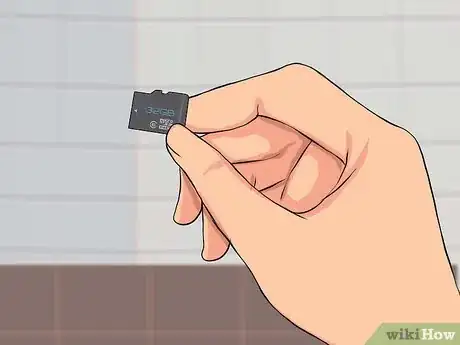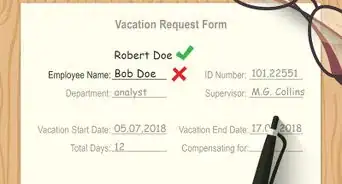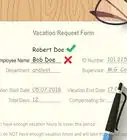This article was co-authored by Sabrina Grover, LMSW. Sabrina Grover, LMSW is a Licensed Master Social Worker (LMSW) who earned her degree in Advanced Clinical Practice from New York University. Sabrina has experience working in substance abuse recovery centers and schools where she gained experience providing evidence-based treatment to children, adolescents, adults, and families. Sabrina specializes in Dialectical, Narrative, and Cognitive Behavioral Therapies. She has particular expertise in treating clients struggling with grief, complex trauma, interpersonal difficulty, family conflict, anxiety, and depression. She commits to providing a supportive environment for everyone who commits to growth and offering a warm, non-judgmental atmosphere.
This article has been viewed 23,525 times.
Do your parents read your journal? Do you want some privacy? If so, read on. This article will show you how to keep it from getting read, how to hide it, and much more.
Steps
Using a Paper Journal
-
1Get a regular notebook. This will be your actual journal, try not to get anything too flashy (think regular school notebook).
-
2Get a decoy journal. This step is for those whose parents know they have a journal, but can be for those still concerned with privacy. First, get something obvious, it could just be a notebook with the words "MY JOURNAL" written on the front, or it could be a big, pink store bought diary; it's up to you. If you already have a journal that your parents keep reading, just use that, they'll recognize it and continue to read it thinking that it's your actual journal.
- The purpose of this step is to draw attention away from your real journal, so that nobody will go looking for it, because they will believe that they have already found it.
Advertisement -
3Disguise your actual journal even further. You can do this by labeling it something like "Math Formulas" or leaving the cover blank. Leave the first few pages (about 2-5) empty, and either write some things pertaining to the cover (i.e. "Geography Facts"—actual geography facts), leave them blank, or doodle some so it will seem like a casual sketchbook. This will act as a cover so if it is found it won't have much attention drawn to it and will appear as that of a normal notebook.
-
4Write "in code". Think of words for all the terms that you wouldn't want anyone to see you write. For example "up" could mean high, "Today I got up and did some stuff with my friends." Basically customize it to sound more innocent.
-
5Write in the decoy journal. Write in the decoy about once or twice a week, or however much you want, just as long as it appears that you are writing in it sometimes. Don't make up things in the journal, like drama, grades, crushes, events, etc. as these will be traced back to you.
- Simply write things about your day you wouldn't mind your parents knowing like: "Today me and Madison went and hung out after school. Then I came home and made dinner. Now I am just sitting on my bed listening to some music." That seems like a pretty innocent day, right? Well, that would be because you left out that after you and Madison hung out for about five minutes, you went and made out with your boyfriend. Keep it innocent but not boring.
-
6Hide your real journal. When looking for a place to hide your journal ask yourself some questions, "Where will my parents (or any other person) look? Sock drawer, under mattress, etc.?", "Would anyone stumble across it if I hid it here?", and "Would it be hard for me to get and put it back?".
- A good idea is to find little areas in your house with extra space, some closets may have these, or anywhere that covers the object from view, it also depends on the age of your house too.
- Get a box slightly bigger than your journal and tape it in a covered area so that it can be removed and put back, but is still out of sight.
- Another good idea would be to hide it under drawers; to do this take the drawer out, place the notebook inside, and push the drawer back in. You need to find what works well for you, be creative and use your surroundings to your advantage.
-
7"Hide" the decoy. This step is optional, but if you usually hide your journal somewhere, and your parents know where that is, keep hiding the decoy there, or put it in an obvious place like under your bed. Basically, make it really obvious, so that it will satisfy anyone's curiosity if they decide to read it, and so they won't accidentally stumble across your real journal while looking for the fake.
-
8Pay attention to whether it's been read. You don't have to do this to the decoy or your real journal, but you can. There are many methods for doing this:
- Put a piece of clear, unnoticeable tape on the corner of the book so that if it's opened, the tape will be pulled off. Tape it at an odd angle so that if anyone opened it and tried to tape it back it would be different from how you left it.
- Alternatively, simply cut the tape to where it was almost cut apart, but not quite, that way the force exerted on it from opening the book will rip it apart and the person won't be able to put it back together.
- Another method would be to take a piece of hair and place it in between the pages, if it's gone it may have been read. However, the wind or other conditions could have also removed it, so this isn't exactly foolproof.
Using an Online Journal
Using a Journal App
-
1Get an app for writing. It could say Journal, or not. It's whatever you want.
-
2Password protect It. If it has a password, good, but if it doesn't download an app like "applock" to password protect it. This may not be a good idea though, as it may cause more suspicion.
-
3Hide it. If your phone is capable of hiding apps, hide it, otherwise, you could move it to the SD card (if you have one) and in a worst case scenario, you could remove the SD card. Another idea would be to rename it and change the icon, there are apps that can do this.
Expert Q&A
-
QuestionWhat do you do when your mom reads your diary?
 Sabrina Grover, LMSWSabrina Grover, LMSW is a Licensed Master Social Worker (LMSW) who earned her degree in Advanced Clinical Practice from New York University. Sabrina has experience working in substance abuse recovery centers and schools where she gained experience providing evidence-based treatment to children, adolescents, adults, and families. Sabrina specializes in Dialectical, Narrative, and Cognitive Behavioral Therapies. She has particular expertise in treating clients struggling with grief, complex trauma, interpersonal difficulty, family conflict, anxiety, and depression. She commits to providing a supportive environment for everyone who commits to growth and offering a warm, non-judgmental atmosphere.
Sabrina Grover, LMSWSabrina Grover, LMSW is a Licensed Master Social Worker (LMSW) who earned her degree in Advanced Clinical Practice from New York University. Sabrina has experience working in substance abuse recovery centers and schools where she gained experience providing evidence-based treatment to children, adolescents, adults, and families. Sabrina specializes in Dialectical, Narrative, and Cognitive Behavioral Therapies. She has particular expertise in treating clients struggling with grief, complex trauma, interpersonal difficulty, family conflict, anxiety, and depression. She commits to providing a supportive environment for everyone who commits to growth and offering a warm, non-judgmental atmosphere.
Licensed Master Social Worker Try having an honest conversation with her. Remember that trust is usually developed over time by following the boundaries that your parents have. Whether that's a curfew or not bringing certain things into the house, it's all about the little things you build on. Once she sees that you can follow those boundaries, she's more likely to trust you with your own boundaries.
Try having an honest conversation with her. Remember that trust is usually developed over time by following the boundaries that your parents have. Whether that's a curfew or not bringing certain things into the house, it's all about the little things you build on. Once she sees that you can follow those boundaries, she's more likely to trust you with your own boundaries.
Warnings
- If someone finds it still, you could get in a lot of trouble, depending on what you wrote, and lose your parents' trust, making them more nosy!⧼thumbs_response⧽
- Don't do anything illegal, and especially don't write it down.⧼thumbs_response⧽
- Be careful with what you write; if it's so bad that you don't want to risk anyone finding out, don't write it down.⧼thumbs_response⧽
- Cops can search your house, and your parents also have the legal right to go through your stuff.⧼thumbs_response⧽

